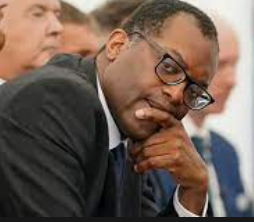
So we have a Pharisee and a tax collector( Luke 18:9-14). Whose side are you on currently? Which do you favour? Is it that we are taught to despise the Pharisee despite Jesus seemingly constantly going to eat with them? Or is it the tax collector, despised for they took the tax deemed appropriate by the local government from the many. Do we have to make a decision based upon stereotypes? Or is that we are feeling it is all down to Original Sin and not Original Blessing?
Comparisions
Oh, the Pharisee is on that already “Thank you that I am not like other people“. They can make a case for themselves to be better than others – can’t we all? I wonder whether a tenth of one person’s income is the same as 10% of another? Does the billionaire feel the pain of losing 10% compared to the pain felt by the poorest in society losing 10%? Very topical with the recent discussions about the 45% tax band in the UK.
Contrition

We have had a number of politicians who have expressed ‘contrition’ in recent months. When you hear someone saying this, how do we feel?
The Tax Collector beats their chest – a colloquially cultural sign – and publicly says that he is not worthy.
Church Folk
So are we the worthy…because we go to Church? I recall recently when someone admitted that they had ‘fallen short’, ‘hadn’t met the mark’. I was awaiting the pity and the silence. What I did hear was the whole audience speaking as one. “We are here for you, you can ring us anytime!” The advice was to step back onto the path, it’s anticipated that we do fall off at times – we are human – but then we return and, together, move onwards.
I spoke recently that faith was not a movement but a way of living.

Here the Pharisee was the one who, outwardly, was the one who followed God’s commandments – and was loved. The Tax Collector had done some really dodgy deals, taking higher tax than necessary – it is said – but was loved.
Where’s the difference, for they were both striving to follow the line, albeit in different difficult circumstances.
Original Sin

There is that perpetual response that we are all sinful, it started at the very beginning. Recall that this was a much later understanding of theology. Original Sin sees Easter about sin management. I prefer Original Blessing. God blessed humanity and we decided differently. As Shroyer writes “If you want transformation, anchor them to God’s unconditional love.“
So Pharisee or Tax Collector?
If we look again at the text, the Pharisee is not condemned. The Tax Collector can find a welcome with God – so who, if any, are excluded?
And Us?
Consider the divisions within our society, some very deep indeed. Given the recent passages about forgiveness, and forgiving again and again; can we see God in all others – without the judgement bit?
Rather than seeing it as power and worth – let’s try loved and welcomed. Can we now glimpse more of the Kin_dom of God?
I found the dialogue interesting and I enjoyed it